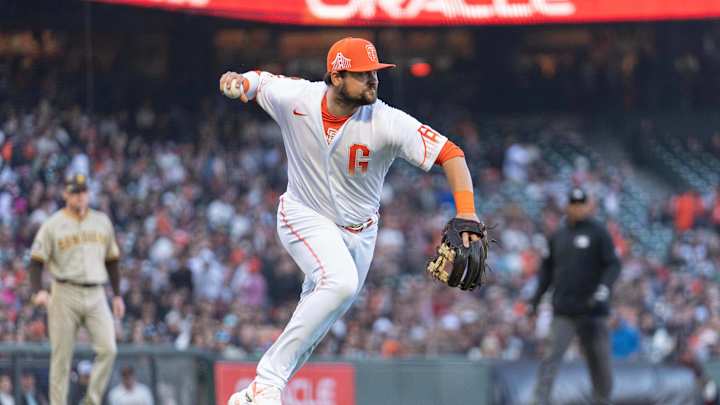MLB's favoritism played a role in SF Giants All-Star snubs

In this story:
MLB announced its full rosters for the All-Star game this past Sunday, and as usual, they're ignoring the SF Giants. Despite having the fifth best record in the National League, they only had one player selected in reliever Camilo Doval. And he has no doubt earned it with his NL-leading 24 saves.
But despite having several players on their roster of All-Star caliber, including third baseman J.D. Davis, first baseman LaMonte Wade Jr., and franchise ace Logan Webb to name a few, as well as one of the strongest bullpens in the game, they weren't able to get more than one guy on the league-wide roster.
All-Star rosters comprise of fan-voted players, player selections, and commissioner's office selections. The All-Star game has long been considered a popularity contest due to that first category, and it's something that fans don't necessarily have grounds to complain about. After all, fan mobilization is largely a team responsibility, and much like with everything in baseball, from roster construction to player marketing, teams are only as strong as their billionaire owners. (Or rather, their owners' desires to open their wallets.)
Since smaller market teams or teams with frugal owners traditionally have gotten the short end of the stick, MLB has mandated that every team must be represented on the first announcement of full rosters. Interestingly, they don't necessarily need to play; if they're injured or otherwise can't participate, teams can designate a replacement. And that replacement doesn't even need to be a teammate.
So, sure. The Giants' organization didn't put enough marketing dollars or energy behind motivating their many millions of fans to vote. But MLB has a role to play here too. By continually promoting the same teams with their reach, they highlight the same players repeatedly, and begin a cycle of success for a select few players who get the limelight.
Take J.D. Davis, for example. He's arguably one of the best third baseman in the National League, alongside Cincinnati's Spencer Steer, who also suffers from no league-wide promo. In fact, he has an identical WAR to Nolan Arenado, who was voted a starter, and he has both a higher batting average and OPS than Austin Riley, who was selected as a reserve player. But Arenado and Riley are both stars on teams that MLB bothers to talk about.
And LaMonte Wade Jr.? Obviously, there's no competing with the Dodgers' marketing machine; they have three All-Star Game starters, and they earned it with their intense fan promotion. First baseman Freddie Freeman, while statistically marginally better than Wade Jr., deserves his spot. But why was Matt Olson, who is worse in nearly every single statistical category than Wade Jr., chosen as a reserve? And why are there not only three Atlanta starting players, but three reserve players and two pitchers selected to the roster? Simple. Their team sees MLB promotion that other teams simply do not.
It'd be easy to say only the Giants get unfairly picked on, and while it's certainly partially true, MLB doesn't deign to talk about several teams they just don't deem worthy. And every single one of them suffers when it comes time for All-Star voting. Unfortunately, these selections aren't just for vanity. Players can use these designations as bargaining chips for their future contracts.
But with a league run by individuals who have outright lied about the relocation situation in Oakland, and added arbitrary rules to shorten the game for fans who weren't watching baseball in the first place, what can you expect?

Natasha Welingkar (she/her) is a creative marketer, writer, and lifelong Bay Area sports fan. Born to Indian immigrants, she has been obsessed with baseball since infancy, picking up on the sport through her parents' love of the SF Giants and the soothing sounds of Jon Miller on the radio.Natasha received a Bachelor's degree from Cal with a major in cognitive science and minor in journalism. In college, she covered breaking news, national politics, and lifestyle for The Tab’s Berkeley offshoot. She also led the campus’ official creative agency, an organization responsible for campus-wide design education as well as graphic design, photography, and web design work for student organizations.
Follow thefriscobay